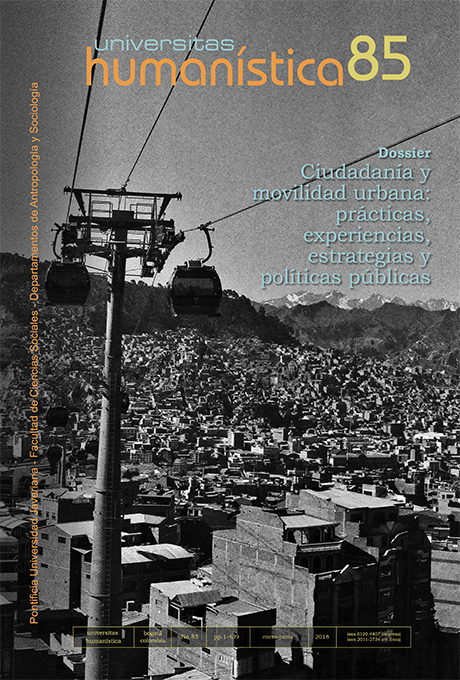Abstract
O presente artigo realiza uma análise de protestos e manifestações populares que ocorreram na cidade de Belo Horizonte, entre 2012 e 2015, tendo como embasamento teórico o novo paradigma das mobilidades. Através de uma análise quantitativa e qualitativa de trezentas e vinte três notícias e reportagens, primeiramente verificou-se a composição e a intensidade das motivações de protesto que reivindicam direito, acesso e qualidade da mobilidade urbana. Num segundo momento, evidenciou-se como os espaços de mobilidade e o próprio movimento dos corpos presentes nos eventos noticiados são fundamentais na composição de repertórios performáticos de grupos protestantes. Os resultados encontrados demonstram que a mobilidade urbana não é apenas uma agenda política complexa e de extrema relevância, mas que o próprio ato de se movimentar e/ou de interromper o fluxo de movimento da cidade são estratégias fundamentais na busca pela visibilidade e divulgação de questionamentos políticos na cena pública.

This journal provides immediate open access to its content on the principle that making research freely available to the public, encourages greater global exchange of knowledge.
The journal Universitas Humanística is registered under a Creative Commons Attribution 4.0 International Public License. Thus, this work may be reproduced, distributed, and publicly shared in digital format, as long as the names of the authors and Pontificia Universidad Javeriana are acknowledged. Others are allowed to quote, adapt, transform, auto-archive, republish, and create based on this material, for any purpose (even commercial ones), provided the authorship is duly acknowledged, a link to the original work is provided, and it is specified if changes have been made. Pontificia Universidad Javeriana does not hold the rights of published works and the authors are solely responsible for the contents of their works; they keep the moral, intellectual, privacy, and publicity rights.
Approving the intervention of the work (review, copy-editing, translation, layout) and the following outreach, are granted through an use license and not through an assignment of rights. This means the journal and Pontificia Universidad Javeriana cannot be held responsible for any ethical malpractice by the authors. As a consequence of the protection granted by the use license, the journal is not required to publish recantations or modify information already published, unless the errata stems from the editorial management process. Publishing contents in this journal does not generate royalties for contributors.


